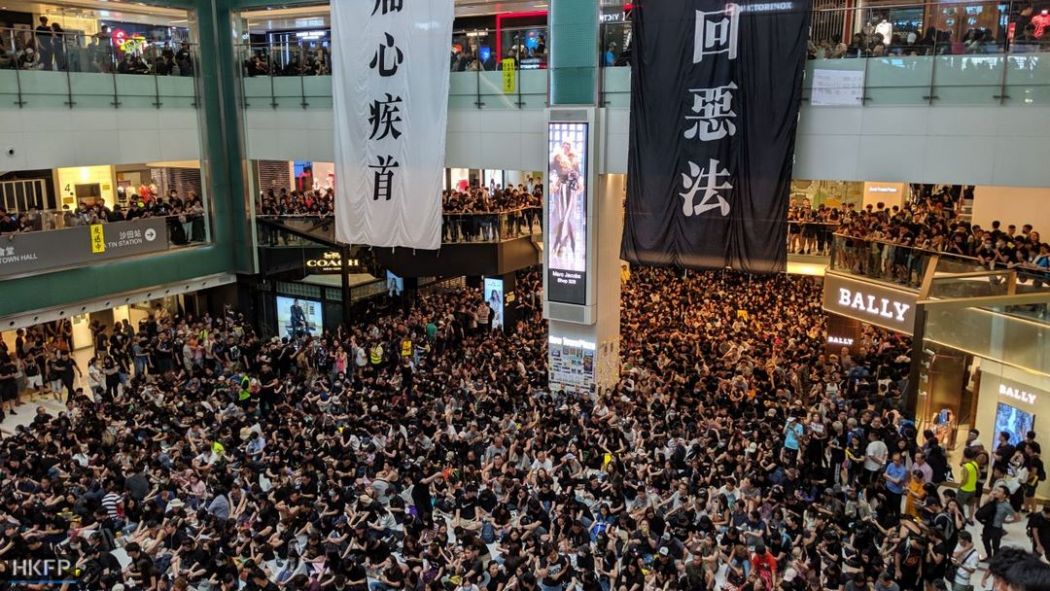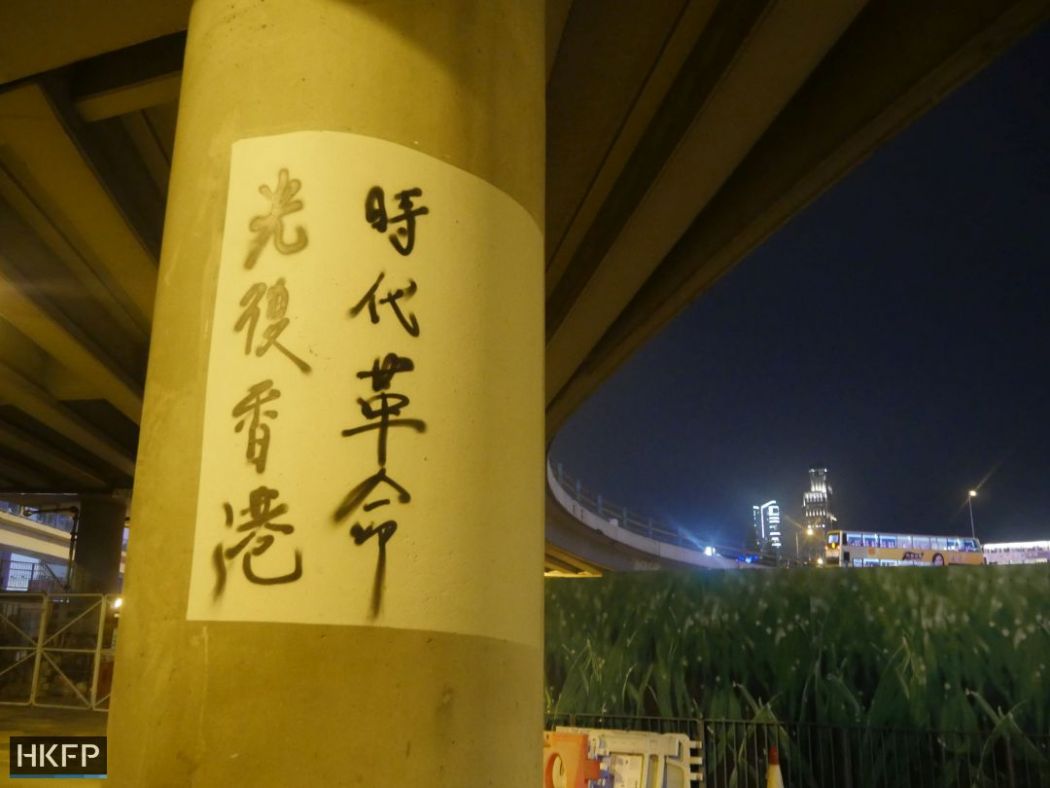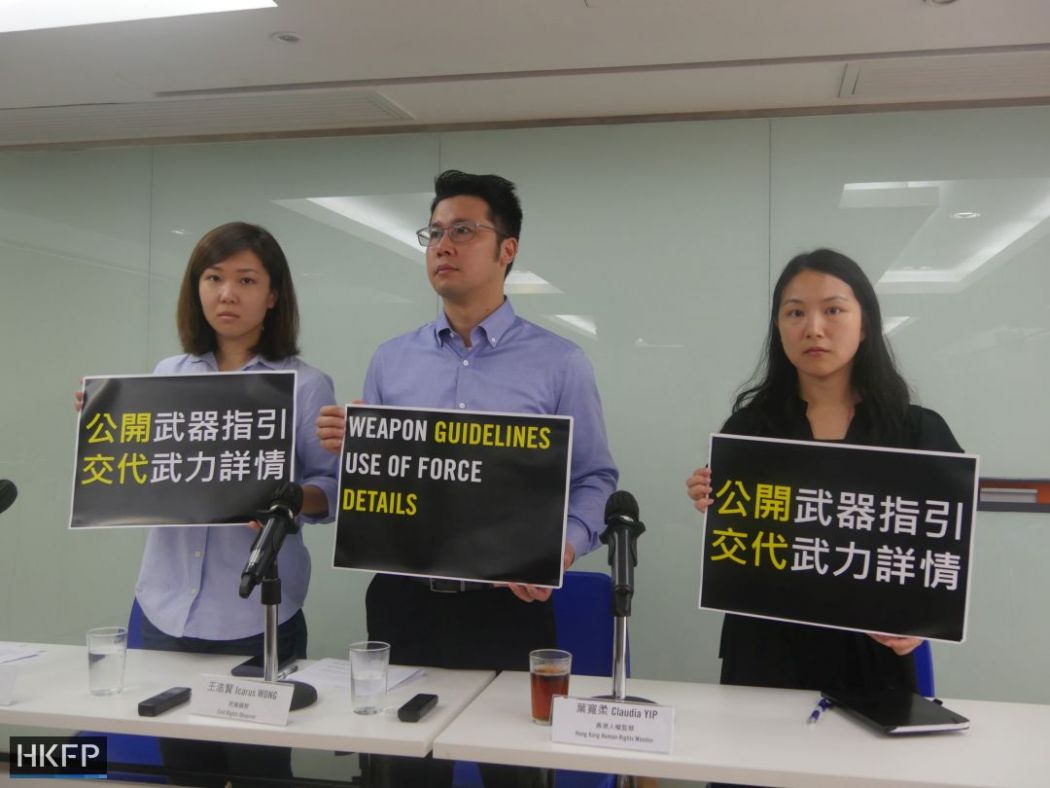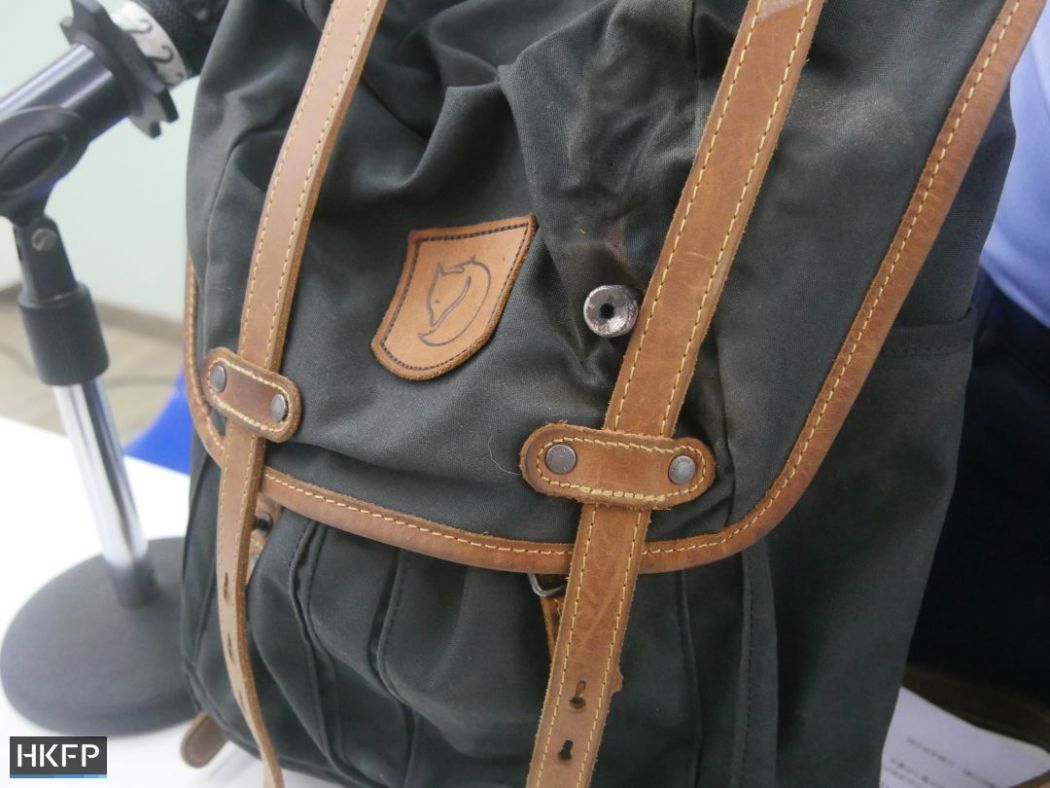Three Hong Kong pro-democracy protesters held a press conference on Tuesday to counter the government’s recent remarks, saying they want to “broadcast under-represented voices” and reflect the truth of the movement.
The three spokespeople – dressed in black and donning helmets and face masks – reiterated protesters’ five core demands and condemned police violence against civilians.

“[We] strongly urge both the police force and the government to stop being the enemy of the people,” said one representative who called himself Linus Kim.
“Instead of staying out of the limelight behind [the police], the current principal officers should be held accountable for the public outcry.”
Organisers were responding to the government’s new policy of having more frequent press briefings, which the trio said contained “malicious distortions” and “untruth.”

Kim, along with two others who used the pseudonyms Mary Tsang and Jerry Chan, said they were not speaking on behalf of the movement.
The “civil press conference” grew out of discussions in a Telegram group, they said, though they declined to identify its members. While the idea also gained traction on the Reddit-like LIHKG forum, the three said LIHKG was just one source of online opinion and they did not mean to only represent netizens.
On Monday, Chief Executive Carrie Lam cited the popular protest slogan, “Liberate Hong Kong, the revolution of our time.” She said the slogan was intended as a call to revolution and a challenge to Chinese sovereignty.

When asked how protesters interpreted the slogan, Tsang said that the slogan was first used during localist Edward Leung’s 2016 election campaign, but it may have gained new meanings in 2019.
“Different people can have different interpretations of what this slogan means, and we hope to invite people who adopted it to explain it,” Tsang said, adding that they hoped to get more ordinary citizens to speak at future press conferences.
The trio also blasted Financial Secretary Paul Chan for implying that protests damaged Hong Kong’s economy.

“[There was a] lack of direct connection between the slowing down of the economy in the second quarter and the protests; the escalation of the protests did not occur until June 9,” the protesters’ statement read.
“While only a minority of shops in the affected areas were closed early to avoid the protests, the impact of such was negligible in comparison to the overall size of Hong Kong’s economy.”
When asked if they were afraid of the People’s Liberation Army cracking down on protesters, Jerry Chan said that the move would disrupt foreign investment in Hong Kong and damage China’s economy.
He added: “If the People’s Liberation Army comes, I think we will ‘be water’ and go home to sleep.”
Observer hit by projectile
Separately, three human rights groups said there was an “obvious problem of excessive use of force” in several dispersal operations by Hong Kong police.

The Civil Rights Observer said at a Tuesday press conference that one of its members found a tear gas round lodged in his backpack.
“When police shot tear gas from the Sha Tin police station yesterday, a stray bullet hit the backpack of one of our observers,” said group spokesperson Icarus Wong.
The round burned a hole in the fabric of the backpack, and the observer suffered slight injuries on his arm.

Claudia Yip from the Hong Kong Human Rights Monitor added that there were clear instances where police used excessive and unnecessary force.
“We saw police firing tear gas at distant protesters… and police using batons to hit protesters in the back of their heads, as they were running away,” she said. “Was force really necessary?”
The two groups – along with Amnesty International Hong Kong – asked the police to strictly abide by the principle of minimum force and to use force only in gradual escalation.

Police also should not use water cannons in the near future, and should not continuously shoot tear gas, rubber bullets, pepper balls or sponge bullets, they said.
